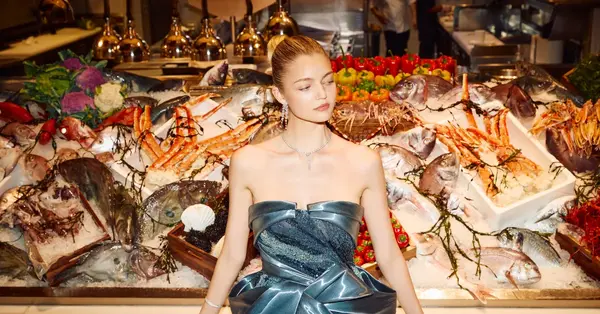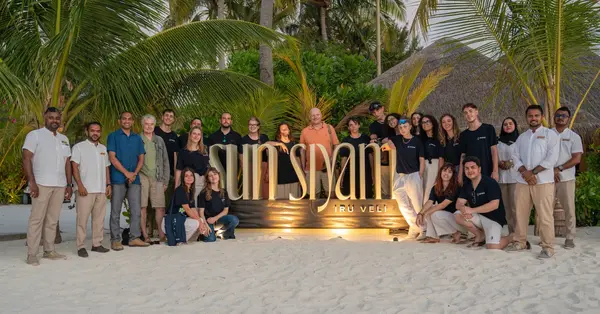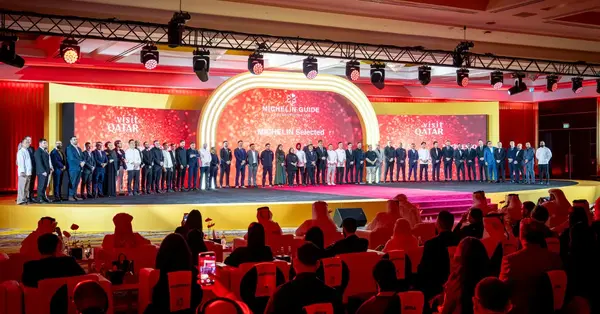You are viewing 1 of your 2 free articles
How restaurant collaborations can grow your F&B business
Dubai's king of collaborating, Boca general manager Omar Shihab, explains why 'four-hand dinners' are good for business and how to execute them well
Hospitality collaborations – what's in it for you?
As founding general manager of Boca restaurant in Dubai, Omar Shihab has earned a reputation as a market leader in culinary collaborations. Other early adopters of the trend include the highly lauded Trésind Studio. Both venues have respected, award-winning chefs, so why bring in a second set of hands at extra cost for what's known as a 'four-hands dinner'?
"We've been running collaborations since 2015," says Shihab. "Our first joint dinner was with a winemaker, the renowned Rioja house Marces de Casares. Since then, we have hosted some of the world's and the region's best chefs and mixologists. Collaborations can go in all directions – with colleagues from the industry, but also with winemakers, farmers and even artists and musicians.
"Almost every week restaurants open in this city with a big bang, but few of them last. We hope that with consistency and an evolving progressive mentality, we can prove that we have substance, and we hope that translates to ROI in our business, but the goals are multi-faceted.
"Opening our door, bar and kitchen to visitors enriches our offerings. No matter how diverse the background of the party we work with, they always bring us something new: a new recipe, technique, story, or just a whole new way of looking at our industry, and this adds to the knowledge and skill set of every member of Boca."
Reason #1: Motivate and Train Staff
With a series of successful collaborations, staff feel motivated. "A new collaboration is exciting for the staff and sparks curiosity," explains Shihab.
Boca's resident chef Matthijs Stinnissen agrees wholeheartedly. "It's very interesting to see not only visiting chefs' techniques but also their view of food. And often, there's a component or technique that I'll use in my next new menu.
"It's also great for networking," adds Stinnissen.
Boca's resident chef Matthijs Stinnissen
At the helm of Oslo's Himkok, one of the World's 50 Best Bars, mixologist Odd Strandbakken is one of Boca's recent collaborators. "When working with other professionals from different countries, backgrounds and cultures, there's always a lot of knowledge to be shared," he says. "Every market has access to different produce, and this creates wonderful diversity in our industry."
Reason #2: Increase Revenue
Collaborations can also help fill seats on slower nights and bring in new revenue streams by attracting new customers, but the costs – particularly when flying in teams of international chefs – can eat the profits.
"Profits should not be the first port of call," says independent collaboration expert Mary Pratt, founder of The Caviar Spoon, a platform that connects businesses looking to partake in mutually beneficial collaborations. "Collaborations evolve. Awareness will lead to profits. The focus should be on the experience of the consumer in the first instance."
Collaborations may not be profitable in the short-term, but they should at least be commercially viable, warns Shihab, who reduces overheads by working with sponsors.
"Our understanding of the local market, the gaps in the market, and our network of global partners allow us to stay one step ahead," he says. "All eyes are on our city for growth and expansion. Dubai and the UAE are open for business, so it's extremely beneficial to link brands with opportunities. Brands also pursue us because of our innovative view on F&B and hospitality. The alignment of principles is extremely important.
"Tratok is one of the most loyal patrons of Boca and the first travel cryptocurrency in the UAE. They want to change the face of the industry and want to be associated with gastronomy and the hospitality industry and so they often sponsor guests' travel and accommodation.
He adds: "A lot of work goes into building these collaborations, but we usually try to keep prices low. With the support of sponsors and brands, we can achieve that."
Reason #3: Marketing
In an emirate that opens new restaurants almost every week, special events such as four-hand dinners give established venues something to talk about.
"From a marketing perspective, it keeps things exciting, new and fresh, and helps us stay current with our industry peers, the media and the public," says Shihab. "It's a highly competitive market with lots of noise, style and little substance; we see collaborations as a way to bring something exciting to our venue, even if it's short-lived."
"Working with international talent helps us spread the word about what we do in our own kitchen, at the bar and on the floor, but collaborations have to have meaning. There needs to be an organic fit that comes from a shared ethos, vision and style of work."
Pratt agrees: "Collaborative experiences can lead to explosive growth for hospitality brands, but to be successful, collaborations need to be led by meaning and purpose. We see Millennial and Gen Z audiences increasingly turn away from collaborations that offer no meaning or purpose, so the importance of underpinning a partnership with these critical pillars cannot be understated. People don't buy brands; they buy experiences."
A Caviar Spoon collaboration in action
Reason #4: Enhance customer experience and inspire loyalty
Happy customers are arguably the best marketing tool a restaurant can have, and collaborations that make memories for diners are powerful.
"Just think of how much value guests get from it," says Shihab. "Through collaborating with international chefs, we're able to offer our guests some of what the world has to offer in their own home – that's been especially relevant during the travel restrictions of the pandemic.
"Ultimately, creating the lasting impact of making memories for our guests by hosting some of the world's most talented chefs and bartenders keeps us top of mind – and that's what we seek most out of collaborations."
How to Create Winning Collaborations
Omar Shihab's top tips for hosting successful four-hand restaurant collaborations
- To find sponsors and collaborators, have lots of conversations with lots of brands, chefs and bartenders, and then connect the dots
- Follow the business chain to see who's launching products that you can promote through your restaurant – that's a good start
- Everyone must get something out of it. Establish what your collaborators need, as well as your own needs before you collaborate
- Collaborations must have meaning – work with partners who share your ethos, vision and style of work, and develop a specific message for the event
- Learn from your collaborators: we've had lessons in foraging, doing more with less, and even lessons in traditional paella making
To explore The Caviar Spoon collaboration platform, visit www.thecaviarspoon.com. For more information about Boca, visit boca.ae
Boca, DIFC, Dubai

















